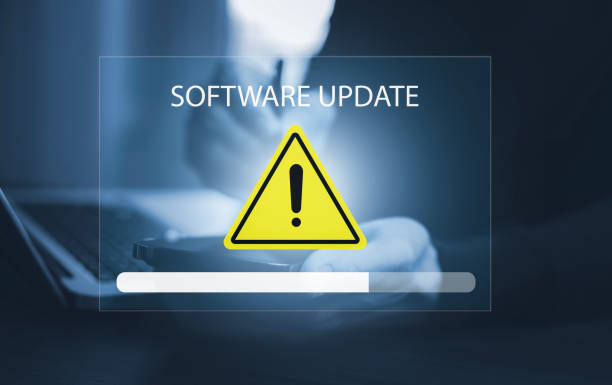Introduction
In today’s fast-paced digital age, where the internet has transformed the way we live, a slow internet can be a major source of frustration for individuals and businesses as well. A speedy and reliable internet connection is important for various online activities. Be it streaming, gaming, online shopping, or working from home. Internet is a necessity.
Well, if you are the one who is facing sluggish internet. Then worry not. To help you out, in this article, we will talk about the reasons why your internet is slow and provide practical solutions to address each issue and how to fix it. Dive in!
Reasons Why Your Internet is Slow
Reason 1: Network Congestion
Have you ever experienced a sudden drop in your internet speed during peak hours? Network congestion is a most common issue that occurs when multiple users share the same network which leads to slower data transfer. To deal with this, consider scheduling heavy data tasks during off-peak hours and investing in a high-speed internet plan.
Reason 2: Outdated Hardware
A second reason why your internet is slow is the hardware you use, such as routers and modems. Because they play a crucial role in determining internet speed. Outdated equipment just struggles to keep up with modern demands, leading to slower connections. That is why upgrading your hardware can significantly improve internet performance and ensure a smoother online experience.
Reason 3: Interference from Electronic Devices
Did you know that electronic devices like cordless phones and microwave ovens can interfere with Wi-Fi signals? Yes, they do! To minimize this interference, try your best to keep these devices away from your router and choose a less crowded Wi-Fi channel.
Reason 4: Poor Wi-Fi Signal Strength
A strong Wi-Fi signal is vital for super-fast internet speed. Make sure that your router is placed in the central location, away from obstructions, and consider using Wi-Fi extenders to boost signal strength in larger spaces. Furthermore, if are interested in knowing about the fastest router, click here.
Reason 5: Software Issues
Outdated software can contribute to slow internet speeds. Regularly update your operating system and applications to benefit from performance improvements and security enhancements.
Reason 6: Browser Issues
Another reason why your internet is slow is the choice of a web browser because it can impact your internet experience. Work on your browser settings, clear your cache regularly, and consider using a browser known for its efficiency in handling online content.
Reason 7: Malware and Viruses
Malicious software can infiltrate your system, leading to slow internet speeds and other issues. Put money into reliable antivirus software and perform regular system scans to keep your devices secure.

Reason 8: Internet Service Provider (ISP) Problems
Sometimes, the issue lies with your Internet Service Provider (ISP). So, contact your ISP to troubleshoot common problems like service outages, connectivity issues, or slow speeds due to network maintenance.
Reason 9: Geographical Location
Your geographical location can impact your internet speed. People living in remote areas may experience slower connections due to limited infrastructure. Explore local initiatives and technologies to enhance connectivity.
Reason 10: Bandwidth Limitations
Bandwidth limitations imposed by your ISP can lead to slow internet speeds, especially during peak usage times. Watch out your bandwidth usage, and consider upgrading your plan if needed.
| Call 866-861-4084 for Internet Deals |
How to Fix a Slow Internet Connection
In the age of digital dependence, a slow internet connection can be a major hindrance to productivity, entertainment, and communication. Whether you’re experiencing occasional slowdowns or consistent snail-paced speeds, understanding how to find it and fix the issue is crucial. In this guide, we will explore practical steps to address a slow internet connection, ensuring a seamless online experience.
1. Check Your Internet Speed
Before diving into troubleshooting, it is very important to measure your current internet speed. For that, use reliable online tools to conduct speed tests. Compare the results with your subscribed plan to identify any significant discrepancies. This initial assessment sets the foundation for further investigation.
2. Restart Your Router and Modem
One of the simplest reasons that people fail to notice is to restart your router and modem. Over time, these devices can accumulate temporary glitches that impact performance. First, unplug them, wait for about 30 seconds, and then plug them back in. This easy and simple action can resolve minor issues and give your internet speed a quick boost.
3. Check for Network Congestion
Network congestion especially during peak hours is a common cause of slow internet. If you notice consistently slower speeds during specific times of the day, it could be due to increased demand on your network. Consider scheduling data-intensive tasks during off-peak hours to avoid congestion and ensure faster speeds.
4. Upgrade Your Hardware
Outdated routers and modems may struggle to keep up with the demands of modern internet usage. If your hardware is several years old, consider upgrading to the latest models that support higher speeds and improved performance. This investment can lead to a significant enhancement in your internet connection.
5. Secure Your Wi-Fi Network
If your Wi-Fi network is not password-protected, unauthorized users might be leeching off your bandwidth, leading to slower speeds. Secure your Wi-Fi network with a strong password and encryption to prevent unauthorized access and make sure that your bandwidth is dedicated to your devices.
6. Optimize Your Wi-Fi Signal
A weak Wi-Fi signal can result in sluggish internet speeds. To optimize your Wi-Fi signal, do the following things:
- Place your router centrally: Make sure that your router is placed in a central location within your home to provide equal coverage. Also, make sure that is away from the things that affect Wi-Fi signals.
- Reduce interference: You must keep electronic devices and appliances away from your router, as they can interfere with the Wi-Fi signal.
- Use Wi-Fi extenders: In larger spaces, consider using Wi-Fi extenders to boost signal strength in areas with poor coverage.
7. Update Software and Firmware
Moreover, outdated software on your devices and outdated firmware on your router can contribute to slow internet speeds. Try to regularly update your operating system, web browsers, and router firmware to benefit from performance improvements, bug fixes, and security updates.

8. Choose the Right Browser
The choice of a web browser can impact your internet experience. Some browsers are more efficient than others in handling online content. Consider using browsers known for their speed and efficiency, such as Google Chrome or Mozilla Firefox. Additionally, regularly clearing your browser cache can help maintain optimal performance.
9. Scan for Malware and Viruses
Malware and viruses can infiltrate your devices, consuming bandwidth and slowing down your internet connection. Keep in mind to use reputable antivirus software to conduct regular scans and ensure your system is free from malicious threats. Additionally, keeping your devices secure contributes to a smoother online experience.
10. Contact Your Internet Service Provider (ISP)
If everything else fails, don’t worry! It is the time to reach out to your Internet Service Provider (ISP). Reach out to customer support to report the issue and inquire about potential service outages, connectivity problems, or any issues on their end that may be affecting your internet speed. They can provide further guidance and assistance.
More Ways to Speed Up a Slow Internet Connection
A slow internet connection can be frustrating and affect various aspects of our digital lives. If you’ve tried the basics and are still facing sluggish speeds, fear not. Here are additional ways to speed up your internet connection and enjoy a smoother online experience.
Use a Different DNS Server
The default DNS server provided by your Internet Service Provider (ISP) may not always be the fastest. Try switching to a public DNS server like Google’s (8.8.8.8 and 8.8.4.4) or OpenDNS to potentially speed up your internet connection.
Implement Quality of Service (QoS) Settings
If you share your internet connection with multiple devices, prioritize traffic using QoS settings on your router. This ensures that essential activities like video calls or online gaming receive higher priority, minimizing the impact of other background tasks.
Utilize a Wired Connection
While Wi-Fi offers convenience, a wired Ethernet connection often delivers faster and more stable speeds. Connect devices directly to your router using Ethernet cables for a reliable and speedy internet connection.
Monitor and Manage Connected Devices
Too many connected devices can strain your network, especially in households with numerous smart devices. Regularly review and manage connected devices to ensure optimal bandwidth distribution.
Consider a Mesh Wi-Fi System
If you have a large home with Wi-Fi dead zones, a mesh Wi-Fi system can improve coverage and eliminate slow spots. These systems use multiple nodes to create a seamless, high-speed network throughout your home.
| Call 866-861-4084 for Internet Deals |
Conclusion
In conclusion, understanding the reasons behind slow internet and implementing the suggested solutions can significantly enhance your online experience. Whether it’s addressing network congestion, updating hardware, or choosing the right ISP, taking proactive measures is key to enjoying a consistently fast and reliable internet connection.
FAQs
Q: Why is my internet slow only during certain times of the day?
A: This could be due to network congestion during peak hours. Consider scheduling data-intensive tasks during off-peak times.
Q: How often should I update my router?
A: Aim to update your router every three to four years to ensure compatibility with the latest technologies.
Q: Can viruses really slow down my internet?
A: Yes, malware and viruses can consume bandwidth and affect internet speed. Regularly update your antivirus software to protect your devices.
Q: Are there any free ways to improve internet speed?
A: Yes, simple steps like restarting your router and limiting connected devices can improve speed without any cost.
Q: Is 5G the solution to slow internet?
A: 5G technology holds promise for faster internet speeds, but its widespread availability is still evolving. Stay informed about local developments.

Meet Jennifer Harper, a wordsmith extraordinaire who has been shaping the digital landscape with her creative prowess for the past two years. Not just a content writer; she is a storyteller who brings the content to life. Her passion for internet trends, memes, and the ever-evolving world of entertainment is evident in every piece she creates. Jennifer doesn’t just follow trends; she sets them.